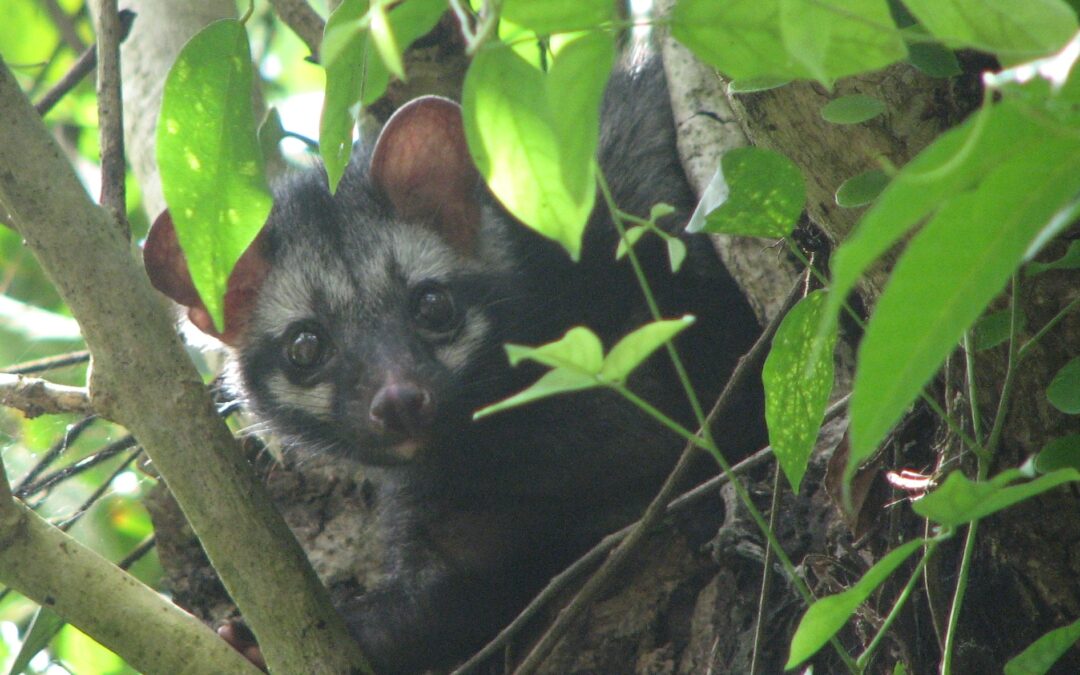Seeds passed through the guts of local palm civets make choice coffee, but could this processing be done more conveniently by widespread, common animals with similar guts?

Prof. Mumblebard claims: Production of civet coffee depends on a few unusual species of mammals; it’s inevitably difficult to find coffee seeds defecated by animals with suitable digestive processes.
Robin and the Honey Badger respond: The intestinal tracts of palm civets are not unique and the wild muntjac deer is already used to process coffee seeds despite having an extremely different gut from palm civets and regurgitating the seeds instead of defecating them. So animals other than palm civets could potentially be used to produce ‘civet coffee’, provided they eat coffee fruits without chewing the seeds and have gut enzymes that digest the seeds neither too much nor too little. Because dogs too are Carnivora with simple guts and omnivorous tendencies, they may be like civets in their processing of coffee seeds. Even the human species might fit the bill because it’s omnivorous with carnivorous tendencies and, like civets, naturally eats fruits as a staple. Hence our question: is there any difference in quality between coffee seeds retrieved from palm civet faeces and those retrieved from dog or human faeces on a potentially industrial scale?

Please join us here at the Bio-edge with your own comments. In the discussion below we encourage links to any evidence supporting either Prof. Mumblebard or Robin and the Honey Badger. Illustrations are welcome but please cite all sources or we may be forced under copyright to delete your comment.
***
Featured image: Asian palm civet (Paradoxurus hermaphroditus) by Praveenp (CC BY-SA 3.0, Asian Palm Civet)

